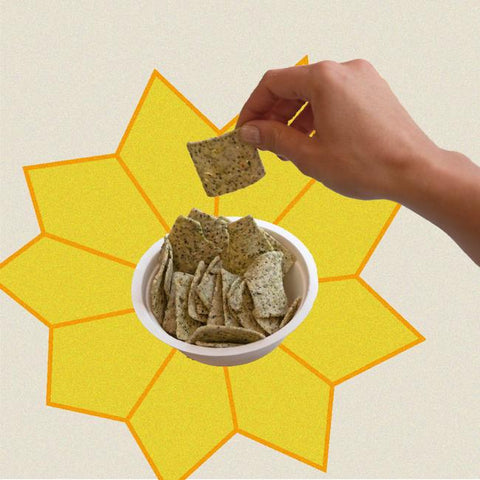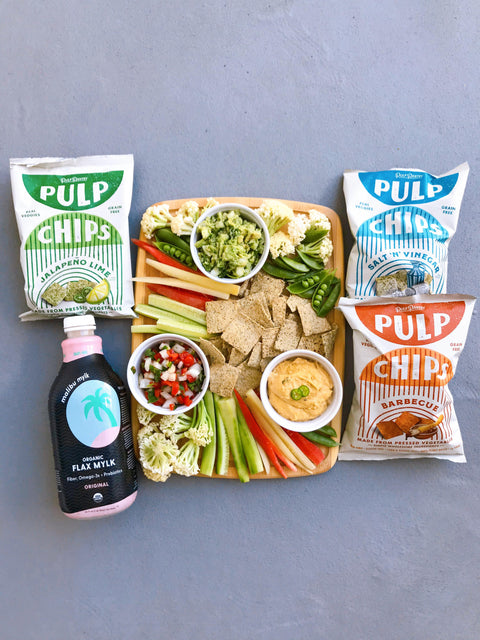
As Pulp Chips are flying off the shelf, we are proud to share the environmental strides resulting from our first production run.
But first, why is reducing food waste important for sustainability and climate resilience? And why is it one of our core tenants as a company? Let’s hit some bullets:
- In the US, up to 40% of all food produced goes uneaten (NRDC).
- Growing food that goes to waste uses up to 21% of our freshwater, 19% of our fertilizer, 18% of our cropland, and 21% of our landfill volume (NRDC).
- Decomposing food waste produces methane - a potent greenhouse gas with 28-36 times the global warming potential of carbon dioxide (IPCC).
- The climate crisis is making people sicker – worsening illnesses ranging from seasonal allergies to heart and lung disease (The Guardian).
- It is estimated that reducing food waste by 15%, we could feed more than 25 million Americans every year (NRDC).
Pulp Pantry is saving fruits and vegetables from landfills, all while creating tasty and nutritious snacks. In our very first production run of Pulp Chips, we upcycled 1,080 kg of celery pulp and 292 kg of kale pulp from organic juiceries in Southern California.
This equates to saving:
- 1,372 kg of produce that would have gone to waste
- 146,896 liters of water that was used to grow produce we rescue
- 2,607 kg of carbon dioxide from entering the atmosphere
- 5,581 square feet of farm land used to grow the rescued produce.
Pulp Chips are a delicious, snackable food that respects the global footprint and legacy we each leave behind. These on-the-go, plant-based chips prove food can be good for you, and the Planet. And most importantly – that it can taste pretty darn delightful.




